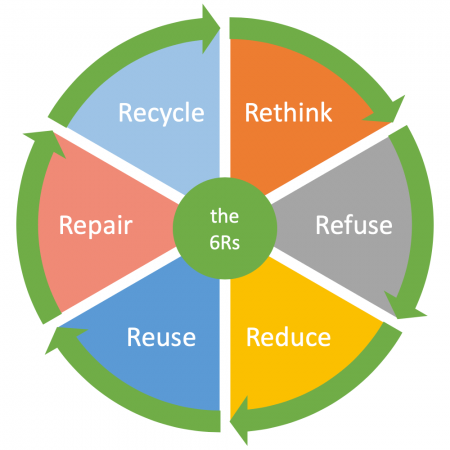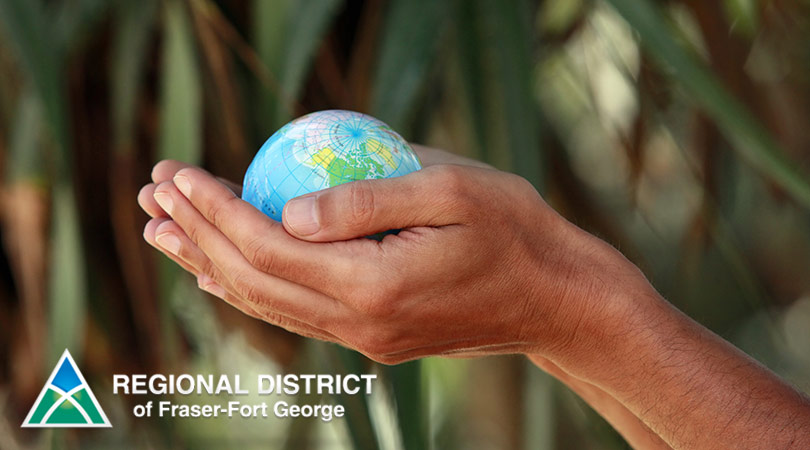Reduce, Reuse, Recycle are Tried and True… But Now Add Rethink, Refuse and Repair.
The news is full of plastics:
“Plastics choking the oceans”
“Bans set on single-use packaging”
“Eliminating plastic straws”
“More than 40% of plastics are only used once”
“Only 9% of plastics are actually being recycled”
How we deal with all this plastic brings to mind the 3R’s – reduce, reuse and recycle. We are now seeing an expansion of the R’s to include Rethink, Refuse, and Repair. The following gives some ideas of how to incorporate the 6R’s into your everyday life.
Rethink
Stop and think about what you are buying and using. Taking the time to rethink our consumption or purchases gives us the opportunity to adjust our behavior and decrease the amount of waste we create. Consider what can be done differently to reduce our environmentalimpact.
Refuse
As consumers we can refuse to accept wasteful products. Refusing to consume is the first step that will have the biggest effect on our waste production. Just say no to single use items such as plastic bags, straws, and to-go containers. Have your monthly bills and bank statements emailed or accessible electronically.

Reduce
Traditionally, reduce was the first R. Now with Rethink and Refuse we have already made inroads to reducing our waste. When considering a new purchase, ask yourself – “Do I really need this?” Make decisions that decrease the amount of waste produced. Shop at farmers markets and second-hand stores where you can purchase items with little or no packaging. Buy in bulk and avoid single-serving sizes.
Reuse
Can a product be used again? Can we find a different use for it? Reusable grocery bags and travel mugs are a great example of reuse in action. Reuse extends the life of these items and eliminates the need for single use bags and cups. For future purchases look to swap out single use items for reusable such as cloth napkins and reusable water bottles.
Items such as clothing or furniture that we no longer have a use for can be donated to thrift stores, non-profit organizations, local shelters and community programs.
Repair
When an item breaks down or no longer functions properly, fix it. When considering a new purchase ask yourself – “can this product be easily repaired? Are there components that can be replaced rather than having to recycle or dispose of the entire product?” This speaks to the sustainability of a product and how often we may need to replace it.
Recycle
Over the years, recycle has been the default action to offset our environmental impact. There are many items that can be recycled through curbside recycling – cardboard, paper, and plastic containers. Extended producer responsibility in British Columbia provides recycling opportunities for a wide variety of materials including used oil, electronics, tires, batteries, small and large appliances, and beverage containers just to name a few.
The best way to recycle is to be informed about what goes where. Visit sortsmart.ca for more information on your local recycling options.
Rethink, refuse, reduce, reuse, repair and recycle. Not as catchy as “reduce, reuse and recycle” but it gives us more options to limit our waste production. Look to incorporate the 6Rs into your daily life today.

Regional District of Fraser-Fort George
155 George St.
Prince George, BC V2L 1P8
Toll Free (BC): 1-800-667-1959
Phone: (250) 960-4400
Fax: (250) 563-7520
E-mail: [email protected]
Web Site: www.rdffg.bc.ca






